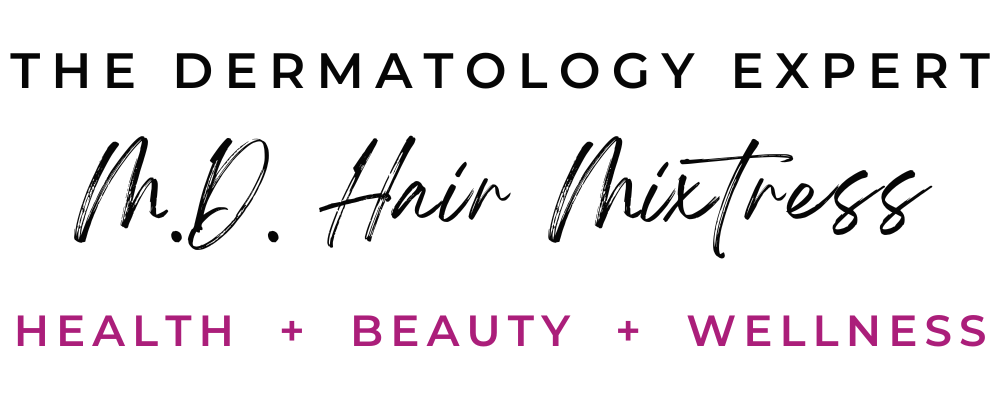In case you haven’t heard, all skin types need sunscreen. Even if you have very dark skin, wearing sunscreen is vital. Sunscreen for skin of color is just as important as it is for white skin. While it’s true that African Americans are less likely to get skin cancer, it can definitely happen. Also, African Americans are more likely to have a poor prognosis when it comes to a deadly type of skin cancer, melanoma skin cancer.
Besides protecting you from skin cancers, sunscreen will help you prevent dark spots and uneven skin, which are common problems in skin of color as we age. Wearing sunscreen can help prevent and delay other signs of aging skin, too, such as discoloration, wrinkles and sagging. It can also improve the radiance of your skin!
Common Questions About Sunscreen and Skin of Color
1. What are UVA and UVB?
The sun emits several types of rays. UVA and UVB are the most common types that affect the skin. Your sunscreen should block UVA and UVB rays. Ultraviolet B (UVB) rays are shorter, and they’re the type that causes sunburns. They are also commonly associated with skin cancers. Ultraviolet A (UVA) rays have longer wavelengths and can penetrate deeper into your skin. UVA rays are responsible for the darkening of the skin that we get with sun exposure. They can cause premature aging, skin discoloration and wrinkling of your skin. Look for sunscreens that are “broad spectrum.” This means that they block UVB and UVA rays.
2. What Does SPF Mean?
SPF stands for Sun Protection Factor. This is a measurement of the amount of time that you can be in the sun without getting a sunburn or reddening of your skin if using the sunscreen exactly as directed. If you’re using an SPF 50 sunscreen, it should ideally take you 50 times longer to burn than it would if you weren’t wearing sunscreen
3. What Does Broad Spectrum Mean?
This means a sunscreen will protect you against both UVA and UVB. You want this.
4. Should I Use an Oil Free Sunscreen?
This means a sunscreen won’t cause pimples (comedos). This is especially important for sunscreens that you’ll plan to use on your face. Those of you who are prone to acne should look for a non-comedogenic sunscreen. A good one for oily skin is: Cetaphil Pro Oil Absorbing Moisturizer With SPF 30.
5. What’s a Chemical Sunscreen?
A chemical sunscreen contains ingredients other than titanium dioxide and zinc oxide. Common chemical sunscreen ingredients are avobenzone and octinoxate. Unlike physical sunscreens that sit on top of your skin, chemical sunscreens are absorbed into your skin. They capture the energy from the sun, convert it into heat, and release it, therefore preventing it from damaging your skin.
6. What’s a Physical Sunscreen?
There are two FDA approved physical sunscreens. These are titanium dioxide and zinc oxide. These sunscreens aren’t absorbed by your skin the way chemical sunscreens are. Instead, they sit on your skin, forming a protective barrier, and block the sunrays from entering your skin. The sun’s rays just bounce off of these sunscreens.
Physical sunscreens are a better choice if you have eczema or sensitive skin, since they aren’t absorbed. Unfortunately, a lot of physical sunscreens can leave an ashy or gray cast to dark skin. However, there are some good ones out there. A popular choice is Neutrogena Healthy Defense Pure Screen. You’ll have to experiment to find out what you like. You can find more recommendations for sunscreens in this post.
7. What SPF Should I Buy?
I’d recommend wearing at least SPF 30 sunscreen. SPF 30 sunscreen, when used correctly, blocks 97& of UVB rays. SPF 50 sunscreen blocks 98% of UVB rays. Don’t think that wearing a higher SPF means your sunscreen will last longer! You’ll need to reapply your sunscreen every 2 hours, no matter which SPF you choose.
8. Will I Still Tan if I Wear Sunscreen?
You might. Many people still tan while wearing sunscreen. It’s super important to reapply your sunscreen if you’re out for prolonged periods. And if you’re swimming or sweating, you may need to reapply more often.
9. What’s the Best Sunscreen for My Skin Type?
Sunscreen is like hair products…very personal! Luckily, most drug stores and beauty stores have good return policies. It might take a few tries before you find the sunscreen that works best for you.
Here are a few suggestions:
- Sensitive Skin: Aveeno Positively Mineral Sensitive Skin Daily Sunscreen Lotion
- Oily skin: Cetaphil Pro Oil Absorbing Moisturizer With SPF 30
- Acne Prone Skin : Cetaphil Dermacontrol Facial Moisturizer for Acne-Prone Skin
- Dry Skin: Dermalogica Dynamic Skin Recovery SPF 50 Moisturizer



